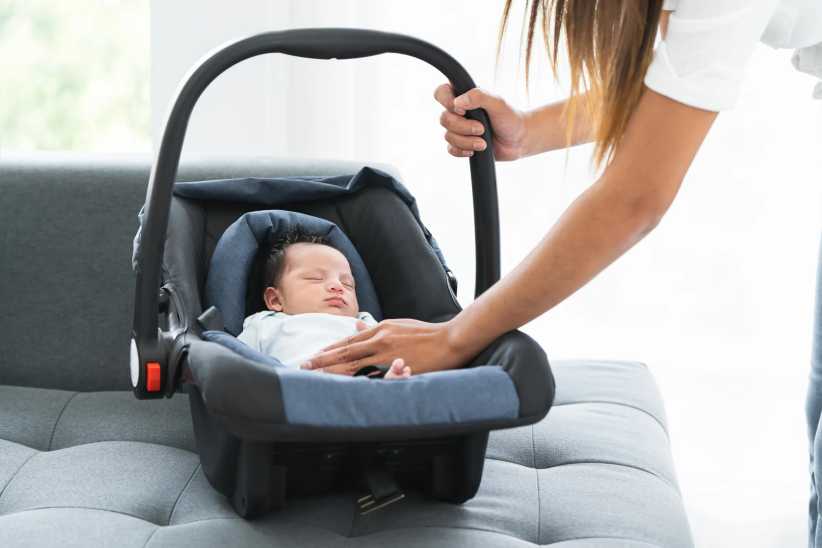
For more than a year, we’ve been facilitating three-hour conversations between dads who are expecting babies (rookies) and dads who’ve had babies within the last three to nine months (veterans). These New Dad Boot Camps, as we call them, are opportunities for expecting dads to calm their fears and learn about what it’s really like to have a baby. Though the conversations typically follow an outline of suggested topics, the real wisdom comes from the veteran dads sharing their experiences from the trenches of new parenthood. Here’s some of the best advice we’ve heard:
Baby, Want to Grab a Coffee?
Experts tell new parents to get babies on eating, sleeping, and pooping schedules as soon as possible. This is good advice, but veteran dads tell rookies that they’ve got to fit the baby into their lifestyle as well. If your baby requires a perfectly dark, perfectly quiet, and perfectly warm environment every time she’s set down to sleep, you’re going to be chained to your apartment for the next three years. Don’t tiptoe around the house speaking in hushed tones because the baby is sleeping—have a normal conversation, turn on the TV, vacuum if you need to clean. Many dads tell us that they keep their babies in the stroller for naps, so they can go grocery shopping, take a run in Central Park, or grab a bite to eat. Here’s an idea: Like in the old (pre-baby) days, invite your partner out for Sunday brunch at your favorite diner while your baby naps in the stroller next to you!
“Yes, Please!”
Family, friends, and neighbors are all over new parents when they come home from the hospital. Though it’s important to set boundaries, veteran dads tell rookies that they should accept help when it’s offered. If you’ve got friends coming for a visit, they will undoubtedly ask if you need anything. Ask them to bring dinner. Ask them to pick up some diapers. Take your neighbor up on the offer to watch the baby for an hour while you take a nap or go to the gym. With your closest friends and family, no job should be off limits. Ask for help cleaning the kitchen or taking out the trash. Friends and family want to help—and new parents need it!
Big Carrots
And then there are the ultimate helpers, potentially at least. Many of us are lucky to have supportive parents and in-laws come to stay with us in the first weeks and months after a new baby. Veteran dads tell rookies that these extended visits need to be planned carefully, so the in-laws know they’re appreciated, but also know the boundaries and what you, ideally, need from them, be it making dinner, doing laundry, washing dishes, and/or keeping the house tidy. One dad told us that he and his wife created some “big carrots,” or projects that aren’t necessarily urgent but take time to complete: a pile of shirts that needed buttons replaced or a closet that needed to be cleaned out. No job is too big or small for a helpful in-law.
Git Er Done
Dads are often told to be as supportive of and helpful to their partners as possible. Not bad advice on the surface, but veterans tell our groups of expecting dads that they shouldn’t wait to be asked or told to change a diaper, make a doctor’s appointment, or plan the week’s meals. New parents are faced with an endless list of tasks and a new dad should definitely have a bunch of stuff for which he takes the lead. This may entail taking on responsibilities that you didn’t have before the baby. This may entail a learning curve. This may entail you insisting on ownership of the task despite your partner’s insistence that you need to do it better or differently. Stay the course. Do the best you can and keep getting better. Look for something that needs to get done and…Git. Er. Done. In the short run and long run, your initiative will be appreciated.

More Talk
Communication is a recurring theme during our New Dad Boot Camps, and veteran dads suggest that new parents have conversations about their changing lives as parents even before the baby is born. Important topics include taking parental leave, juggling work and family, sharing parenting responsibilities, and potentially dealing with baby blues and post-partum depression. All the changes in your new life, plus the lack of sleep, almost inevitably lead to some emotional turmoil. Communication will help you prepare for the rough patches as a couple, and then help you get through them. Try to be especially sensitive to how you talk about feelings of depression, which are quite common in the first year. Obviously, you don’t want to critically suggest your partner is acting “depressed” during the heat of any argument—when, in fact, she might really be depressed and need your help. And if you have any questions about post-partum, do some research and suggest she talk to her friends and to her doctor about it immediately.
First Kiss
The days of kicking back with a scotch and a newspaper after work are long gone. Veteran dads who work outside the home often suggest that rookies take a moment to decompress and re-energize ahead of time, even just before they leave work, because they should be prepared for the “second shift” as soon as they walk in the door. If you are coming home to a partner who has been with the baby all day, start with a moment to connect—a kiss, a few words to check in, and a nod that “you’ll” take it from here. If you are both coming home from work, take a moment to connect and then divide and conquer. You both have the same end game—baby is fed, bathed, and in bed; kitchen is clean; bills are paid; and you’re snuggling together on the couch with a glass of wine watching the latest episode of “Mad Men” or “Homeland” at the end of a long day.
Matt Schneider and Lance Somerfeld are the founders and co-organizers of the NYC Dads Group, a community of active dads in the New York City area. They offer New Dad Boot Camps at 92nd Street Y, The JCC of Manhattan, and Tribeca Parenting locations around the city. Click here for more information and a full schedule.




























